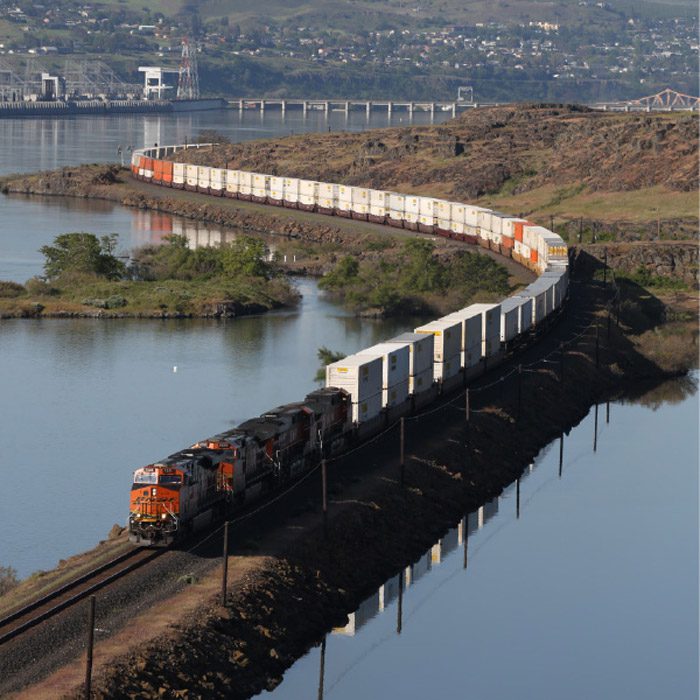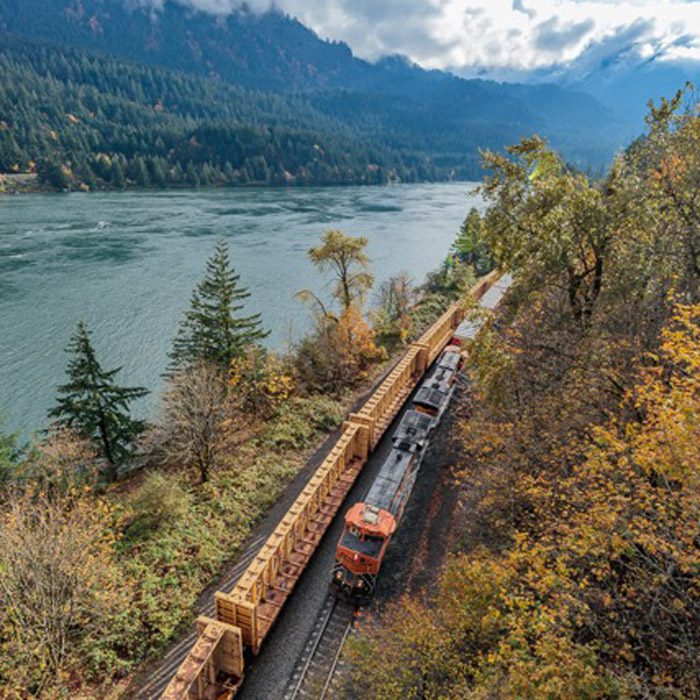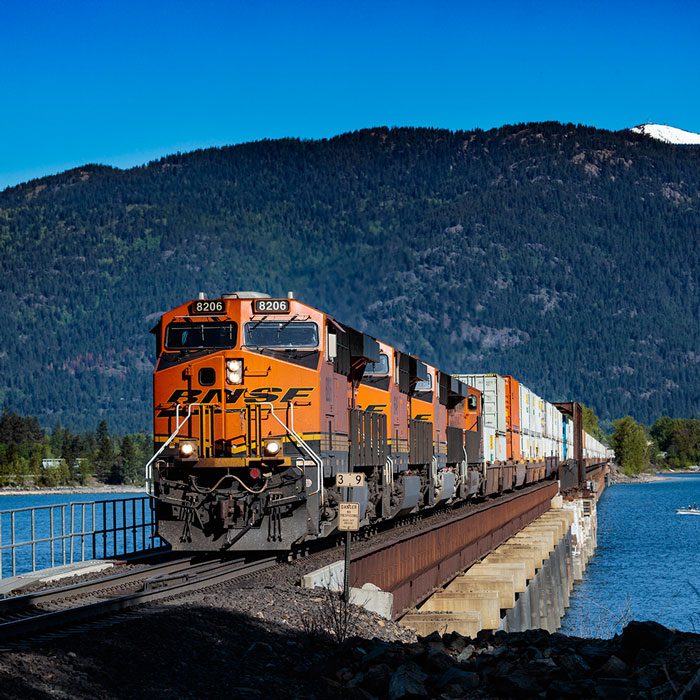At The Hill, former National Transportation Safety Board Managing Director Peter Goelz explains why the Spokane City Council’s proposed ordinance sets a dangerous precedent:
Rail Safety Remains Strong
Railroads moved more than 528,000 carloads and intermodal units of goods in the week ending July 23. Down 5.3 percent year over year, the numbers are still impressive when you consider the net effect on American life. Within those carloads are food products destined for grocery stores, water treatment materials that purify drinking water and energy sources that help keep the lights on.
“Everything from food to my kids’ toys will probably have been shipped by freight at some point,” says Eli Lehrer of the R Street Institute.
Given its significance to the nation’s economy, policy makers must facilitate, not hinder, rail transportation. Unfortunately, the railroads are increasingly faced with government mandates that seemingly disregard the impressive safety record of freight railroads, as well as ignoring the economic growth that partial deregulation has brought. There is a need to set the record straight, and for decision makers to view freight rail without bias.
Government safety statistics paint a rather clear picture. On the mainline rail network, derailments are down 25 percent compared to 2010. Employee injuries have decreased 48 percent in the last 15 years, while the overall train accident rate is 39 percent less today than in 2000. For the transportation of hazardous materials, 99.999 percent of carloads move freely without incident to their destinations.
Consider also the positive effect of just one train taking as many as 200 trucks off the road. It eases congestion, reduces infrastructure wear and tear and increases safety.
Also consider the continued efforts of the industry to train the emergency community and develop resources such as AskRail, a mobile application that provides real time info regarding rail cargo so that if a rare accident occurs first responders know the right steps to take fast.
Railroads have said repeatedly their goal is zero accidents, and they are working every day to achieve that goal. The record reflects the positive progress made.
Yet, several recent policy proposals seem to disregard the railroads’ safety record and perhaps mask other broader political agendas.
For instance, the Federal Railroad Administration (FRA) continues to advance a proposal that dictates crew size operations even though evidence actually points toward single man crews being safer. The costly supposed redundancy, in fact offers no greater level of safety. At best the proposal needs further study before being arbitrarily imposed.
“While the FRA is relying on anecdotes to argue that it would improve safety, there is no data to support its assertion,” says John Graham, a former U.S. regulatory czar. “In fact, the FRA acknowledges that the statistical evidence supporting its argument is lacking.”
The FRA also is forging ahead with a very expensive mandate to install a technology known as electronically controlled pneumatic brakes, even though evidence again indicates they will not materially improve safety. This system carries an estimated $3.4 billion price tag to be picked up by the private rail companies – without a documented corresponding benefit. In fact, extensive testing of the system proves them unreliable in most situations.
The confusing and anecdotal driven approach has permeated local communities too.
The Spokane city council recently issued a ballot measure that could ultimately fine railroads $261 per carload of coal or crude oil moved through the city. Forget that the proposal is illegal under federal laws regulating interstate commerce, or that railroads must accept the cargo they are presented with. Forget that the residents of Seattle use both coal and oil. The premise sets a dangerous precedent.
Who is to say that the same set of people won’t then move on to fining the movement of genetically modified crops, an issue taken on by a state ballot measure in Washington in 2012? There is no guarantee, because like the federal measures, it is not about safety. It is about taking the back door to shaping broader political agendas, be it hostility towards fossil fuels or to whatever is the identified evil of the moment.
Misguided proposals like these could handicap our still fragile economic growth. New data shows the U.S. economy grew just 1.2 percent in the second quarter. Meanwhile, new data also shows that the railroad sector generated $274 billion in economic activity and $33 billion in taxes in 2014 alone.
While no one is alleging that any one single policy proposal will cripple the industry, thereby diminishing its positive economic impact, the aggregate of regulations could have a real dampening effect in the future. In these less-than-ideal economic times, why should we ignore the safety record of railroads and unnecessarily disrupt an economic engine like freight rail?
Let data drive safety policies, not politics.




